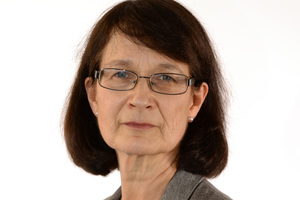Discharging Patients into Care Homes Would be ‘Appropriate’, Covid Inquiry Hears
The Covid inquiry has heard from a top government adviser that that discharging positive Covid patients into care homes would be “entirely clinically appropriate” while not welcomed by families.
People with Covid-19 were discharged to care homes over fears about the NHS getting “clogged up”, the Covid inquiry heard.
Professor Dame Jenny Harries, England’s deputy chief medical officer during the pandemic and now head of the UK Health Security Agency, told the inquiry of how an email she sent in mid-March 2020 described the “bleak picture” and “top line awful prospect” of what needed to happen if hospitals overflowed.
Dame Harries said: “Whilst the prospect is perhaps what none of us would wish to plan for, I believe the reality will be that we will need to discharge Covid-19 positive patients into residential care settings for the reason you have noted.
“This will be entirely clinically appropriate because the NHS will triage those to retain in acute settings who can benefit from that sector’s care.”
“The numbers of people with disease will rise sharply within a fairly short timeframe and I suspect make this fairly normal practice and more acceptable, but I do recognise that families and care homes will not welcome this in the initial phase.”
The email has shed new light on the government’s awareness of the crisis in care homes at an early stage of the pandemic. In 2022, the discharge of Covid patients back into care homes without testing was ruled in the High court to gave been illegal.
Dame Harries, who is now the chief executive of the UK Health Security Agency, defended the email, claiming it was a “high-level picture”.
“If people were not thinking through what the likelihood was in the rise in numbers of cases, I don’t think we could have sensible conversations about managing risks,” she said.
Dame Harries was questioned on whether care homes had been given enough support, and whether the need to protect people inside care homes had been adequately communicated alongside her advice in the email.
“Guidance was updated very regularly, but I do think there was a problem which is I think that the NHS and social care should be seen as a total continuum, they are all part of the healthcare system, and sometimes one bit gets developed separate from another,” she said.
“I’m really keen to emphasize my email was a high-level view, so people were aware of what was kind of coming over the hill, but the hill was still a little way away.”
The email was a reply to Rosamond Roughton, who was the director general for adult social care at the Department for Health and Social Care at the time.
Ms Roughton had asked: “When we introduce the shielding policy, what should our approach be to allowing patients to be discharged into care homes who are symptomatic of Covid-19?”
Ms Roughton’s email continued: “My working assumption was that we would have to allow discharge to happen, and have very strict infection control? Otherwise presumably the NHS gets clogged up with people who aren’t as acutely ill.”
And she acknowledged it was “a big ethical issue for care home providers who are understandably very concerned and are already getting questions from family members”.
The inquiry later heard how Professor Dame Jenny along with other top health experts wrote to cabinet secretary Simon Case in May 2020, when he was Number 10 permanent secretary, voicing concern that people may believe they “could go back to normal” wearing face coverings made from T-shirts, when there was no evidence to support this.
She added: “The problem we had there was that there appeared to be a view permeating through, and a real concern and risk, that it was being conceived that if you did one metre social distancing and you wore a face covering slung round your cheek, or whatever it might be, that was fine.
“So, there was a risk that in encouraging face (masks) people would stop doing the thing that was really important, which was distancing and all the other things.”
The Covid inquiry will set aside a complete module to the social care sector, with public hearings due to be heard in spring 2025.






